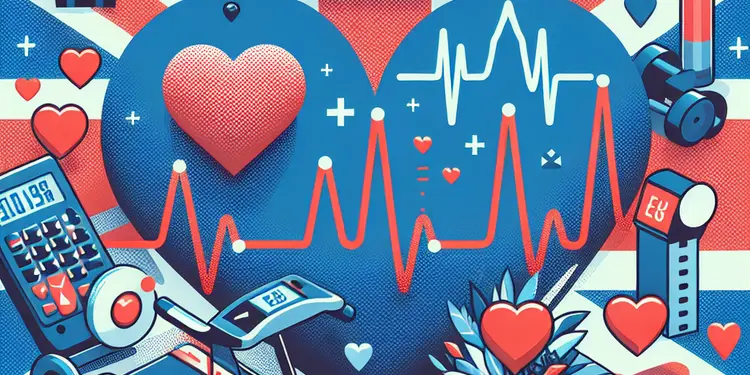
Find Help
More Items From Ergsy search
-
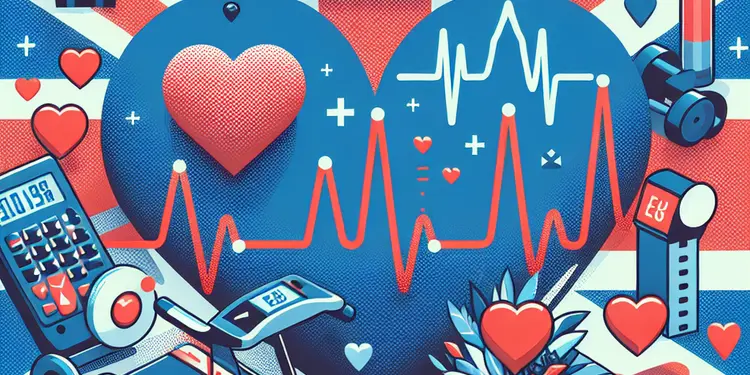
How does exercise impact heart failure?
Relevance: 100%
-

Heart Failure : Symptoms of heart failure
Relevance: 97%
-

Heart Failure : What is heart failure?
Relevance: 93%
-

Heart Failure : The normal heart
Relevance: 91%
-

Heart failure introduction
Relevance: 91%
-

Heart Failure : Heart failure that cannot pump
Relevance: 89%
-

Can heart failure be prevented?
Relevance: 85%
-

Are there different types of heart failure?
Relevance: 83%
-

Heart Failure : When the heart becomes stiff?
Relevance: 83%
-
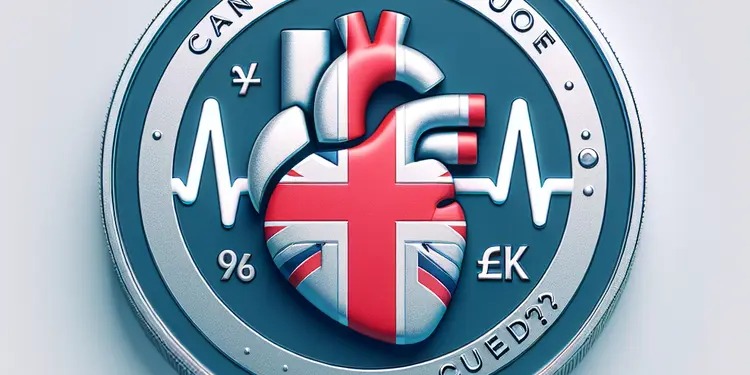
Can heart failure be cured?
Relevance: 83%
-

How is heart failure diagnosed?
Relevance: 81%
-

What causes heart failure?
Relevance: 80%
-

What should I do if I experience symptoms of heart failure?
Relevance: 77%
-

What is the prognosis for someone with heart failure?
Relevance: 77%
-

Is Baxdrostat used in treating heart failure?
Relevance: 75%
-

Can heart failure affect other organs?
Relevance: 73%
-

What medications are commonly prescribed for heart failure?
Relevance: 73%
-

What is the role of diet in managing heart failure?
Relevance: 73%
-

Heart Failure : Treatment and monitoring of fluid retention
Relevance: 72%
-
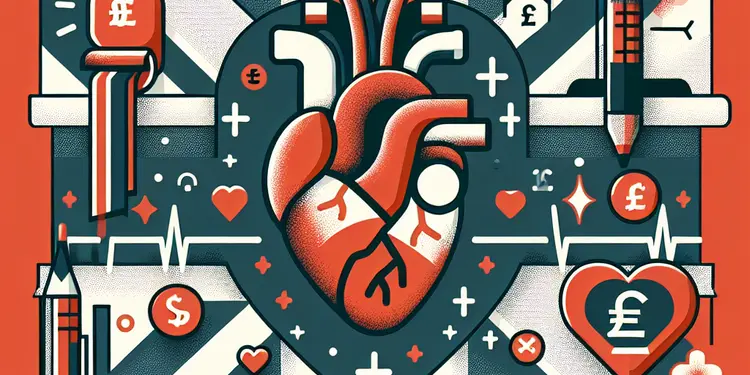
What is heart failure?
Relevance: 67%
-

What are the common symptoms of heart failure?
Relevance: 59%
-

What lifestyle changes can help manage heart failure?
Relevance: 53%
-

How often should someone with heart failure see their doctor?
Relevance: 51%
-

Medicines of the heart
Relevance: 45%
-

How do beta-blockers contribute to heart attack prevention?
Relevance: 44%
-

What are the long-term effects of a heart attack?
Relevance: 43%
-

Heart stents
Relevance: 43%
-
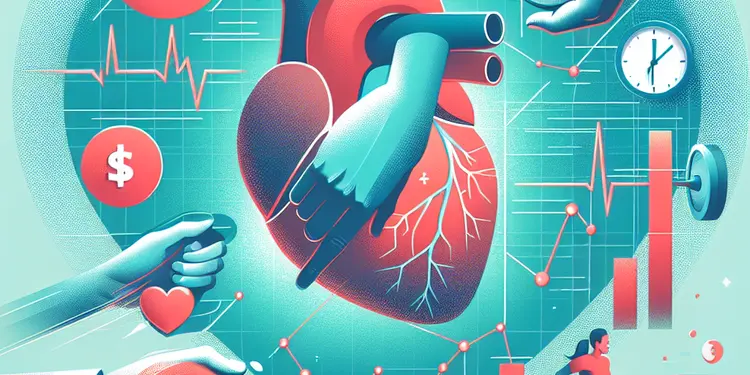
Can physical exertion trigger a heart attack?
Relevance: 43%
-

Is my abnormal heart rhythm dangerous?
Relevance: 42%
-

Is my abnormal heart rhythm dangerous?
Relevance: 42%
-

Is it possible to prevent a heart attack?
Relevance: 42%
-

Heart Attack Stories | NHS
Relevance: 41%
-

How do mixed exercises impact cardiovascular health?
Relevance: 41%
-

What are the risk factors for a heart attack?
Relevance: 41%
-

Does coffee consumption have any long-term heart health effects?
Relevance: 40%
-

What is heart valve disease?
Relevance: 39%
-

Heart Attack Stories | NHS
Relevance: 39%
-

Will a heart bypass make me live longer?
Relevance: 39%
-
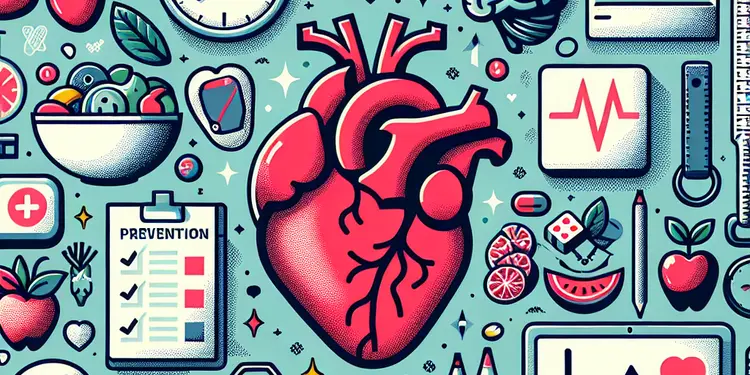
What is the role of lifestyle modification in heart attack and stroke prevention?
Relevance: 38%
-

Is it possible to have a heart attack without chest pain?
Relevance: 38%
Understanding Heart Failure
Heart failure, a condition where the heart is unable to pump blood effectively, affects numerous individuals in the UK and beyond. It can lead to symptoms such as fatigue, shortness of breath, and fluid retention. Managing this condition can be challenging, but lifestyle changes, including exercise, can play a critical role in improving outcomes and quality of life.
The Role of Exercise in Heart Health
Exercise is a fundamental component of heart failure management. Engaging in a structured and supervised exercise program can provide significant benefits for those with heart failure. Regular physical activity helps improve cardiovascular fitness, increases exercise tolerance, and strengthens the heart muscle, enhancing its ability to pump blood more efficiently. Additionally, exercise contributes to improved circulation and reduced symptoms such as breathlessness and fatigue.
Types of Exercise Recommended
Patients with heart failure can benefit from a variety of exercises, but it is crucial to start slowly and gradually increase intensity under medical supervision. Aerobic exercises, like walking, cycling, and swimming, are particularly beneficial. These activities help improve endurance and cardiovascular health. Resistance training, involving light weights or resistance bands, can also be incorporated to strengthen muscles, which can help in carrying out daily activities with greater ease.
Benefits Beyond Physical Health
Beyond the direct physical benefits, exercise offers several psychological and emotional advantages. Engaging in regular physical activity can help alleviate symptoms of depression and anxiety, which are common among heart failure patients. Exercise can also boost mood and improve overall mental well-being, contributing to a better quality of life.
Safety Considerations
Safety is paramount when introducing exercise to individuals with heart failure. Before beginning any new exercise regime, it is essential for patients to consult with their healthcare provider or a specialist in cardiac rehabilitation. This consultation ensures that an appropriate and safe exercise plan is developed, tailored to the individual's specific needs and condition. Monitoring for any adverse symptoms, such as chest pain or extreme shortness of breath during activity, is also vital to prevent complications.
Conclusion
Incorporating exercise into the management plan for heart failure presents numerous benefits that can lead to enhanced cardiovascular function and improved overall well-being. Under professional guidance, exercise can become a safe and effective strategy to manage heart failure, offering hope and improved health outcomes for patients in the UK. By balancing safety with consistent activity, those with heart failure can experience significant improvements in both physical and mental health, underscoring the importance of exercise as an integral component of heart failure management.
Understanding Heart Failure
Heart failure is when the heart cannot pump blood well. This can make people feel very tired, find it hard to breathe, and their body might hold onto extra water. People in the UK and around the world can have heart failure. Changing your lifestyle, like doing exercise, can help people feel better and live a healthier life.
The Role of Exercise in Heart Health
Exercise is very important if you have heart failure. Doing exercise regularly can help in many ways. It makes your heart stronger, helps you breathe better, and lets you do more activities. Exercise also helps your blood flow better and makes you feel less tired.
Types of Exercise Recommended
There are different exercises that can help if you have heart failure. It's important to start with easy exercises and slowly do more. Walking, cycling, and swimming are good because they make your heart and body stronger. Using small weights or stretchy bands can also build your muscles, helping you do everyday tasks easier.
Benefits Beyond Physical Health
Exercise is not just good for your body; it also helps your mind. It can make you feel happier and less worried. Many people with heart failure feel sad or anxious, and exercise can help them feel better. Being active regularly can improve your mood and mental health.
Safety Considerations
Being safe while exercising is very important for people with heart failure. Talk to your doctor before starting new exercises. This helps make sure you have a plan that's right for you. Watch for any bad signs like pain in your chest or hard breathing when you exercise. These might mean you need to stop and talk to your doctor.
Conclusion
Adding exercise to your routine can help manage heart failure. It can make your heart work better and improve how you feel overall. If you work with doctors and do safe exercises regularly, you can feel stronger and happier. Exercise is a key part of staying healthy when you have heart failure.
Frequently Asked Questions
What is heart failure?
Heart failure is a condition in which the heart is unable to pump sufficiently to maintain blood flow to meet the body's needs.
How does exercise benefit people with heart failure?
Exercise helps improve cardiovascular endurance, strengthens heart muscles, enhances circulation, and can improve overall quality of life for those with heart failure.
Is exercise safe for people with heart failure?
Yes, with proper medical guidance, exercise can be safe and beneficial for most people with heart failure.
What types of exercise are recommended for heart failure patients?
Aerobic exercises such as walking, swimming, or cycling are typically recommended for heart failure patients.
Can exercise improve heart function in heart failure patients?
Regular exercise can help improve heart function and the body's ability to use oxygen efficiently, which can benefit heart failure patients.
Should heart failure patients avoid any specific exercises?
Heart failure patients should generally avoid high-intensity and heavy-weight lifting exercises unless advised differently by their healthcare provider.
How often should heart failure patients exercise?
It's typically recommended that heart failure patients engage in moderate exercise for about 150 minutes a week, but this can vary based on individual conditions.
Can exercise cause harm to heart failure patients?
While exercise is generally beneficial, overexertion or inappropriate exercises can pose risks, so it's important that heart failure patients follow a doctor's guidance.
What precautions should heart failure patients take before exercising?
Patients should consult with their healthcare provider, gradually increase intensity, monitor symptoms, and avoid exercising in extreme temperatures.
Can exercise reduce symptoms of heart failure?
Exercise can help reduce certain symptoms of heart failure, such as fatigue and shortness of breath, improving overall functionality and wellness.
How does exercise impact the heart's ability to pump blood?
Exercise strengthens the heart muscle, improving its ability to pump blood more effectively throughout the body.
Does exercise play a role in managing heart failure lifestyle changes?
Yes, exercise is a crucial component of lifestyle changes that can help manage heart failure along with diet, medication, and stress management.
What immediate effects can exercise have on heart failure patients?
In the short term, exercise can lead to increased circulation and improved respiration, but patients should monitor for any adverse symptoms.
Is supervised exercise recommended for heart failure patients?
Supervised exercise programs, such as cardiac rehabilitation, are often recommended to ensure safety and effectiveness.
Can exercise prevent the progression of heart failure?
Exercise can help slow the progression by improving heart function and reducing risk factors, but it cannot cure heart failure.
What should heart failure patients do if they experience discomfort during exercise?
Patients should stop exercising, rest, and seek medical advice if discomfort persists or if new symptoms develop.
How can patients with heart failure stay motivated to exercise?
Setting realistic goals, tracking progress, joining support groups, and engaging in enjoyable activities can help heart failure patients stay motivated.
Can exercise improve mental health for heart failure patients?
Yes, exercise can help reduce anxiety, depression, and enhance mood, which are common issues among heart failure patients.
What role does exercise play in cardiac rehabilitation?
Exercise is a core component of cardiac rehabilitation, helping to improve physical fitness and reduce heart disease risk factors.
Should heart failure patients consult a specific professional for exercise guidance?
It's advisable for heart failure patients to seek guidance from healthcare providers or specialized exercise physiologists to develop an appropriate exercise plan.
What is heart failure?
Heart failure means the heart is not working well. The heart is a muscle that pumps blood. When the heart is weak, it cannot pump blood like it should. This makes it hard for the body to get the oxygen and nutrients it needs.
People with heart failure might feel tired. They may have trouble breathing. Feet or ankles might swell up.
If you or someone you know has these problems, it's important to see a doctor. A doctor can help with medicine and advice.
Tools that can help include using pictures to understand, talking to a healthcare professional, or finding books with simple words.
Heart failure is when the heart can't pump blood well enough for the body. This means the body doesn't get all the blood it needs.
How does exercise help people with heart problems?
Exercise makes your heart stronger. It helps you feel better and have more energy.
Here are some ways to exercise safely:
- Start slow, like walking or stretching.
- Do a little bit every day.
- Listen to your body—stop if you feel pain.
- Talk to your doctor for advice.
Use tools to help, like:
- Apps that remind you to move.
- A friend to walk with you.
Moving a little every day can make you stronger.
Exercise is good for your heart. It makes your heart stronger and your blood flow better. This can help you feel better if you have heart problems.
Can people with heart problems exercise safely?
If you have a heart problem, you might wonder if it is okay to do exercise. Exercise can be safe for you, but it's important to be careful and talk to your doctor first.
Here are some tips to help you exercise safely:
- Talk to your doctor: Always ask your doctor if it's safe for you to exercise.
- Start slow: Begin with easy exercises, like walking, and see how you feel.
- Listen to your body: If you feel tired or get pain, stop and rest.
- Ask for help: A family member or friend can support you while you exercise.
Remember, doing a little bit of exercise can be good for your heart. But always be safe and listen to your doctor.
Yes, exercise can be safe and good for most people with heart problems if they listen to their doctors.
What exercises are good for people with heart problems?
Doctors say heart patients should do exercises like walking, swimming, or riding a bike. These exercises are good for a healthy heart.
Can exercise help the heart work better if it does not work well?
Exercise can be good for the heart. It can help the heart get stronger and work better.
If your heart does not work well, try these tips:
- Start with easy exercises, like walking.
- Ask a doctor what exercises are safe.
- Rest when you feel tired.
- Use tools like step counters to track exercise.
Doing exercise can help make your heart work better. It can also help your body use oxygen well. This is good for people who have heart problems.
What exercises should people with heart problems be careful with?
People with heart problems should usually not do heavy exercise or lift big weights. Ask your doctor what is safe for you.
How often should people with heart problems exercise?
If you have problems with your heart, it is good to move your body.
Try to exercise a little bit each day. You can walk, stretch, or do other gentle exercises.
It is important to listen to your body. If you feel tired, take a rest.
Talk to your doctor. They can tell you what is safe for you.
You can use a pedometer or an app on your phone. These can help you keep track of how much you move.
Doctors usually say that people with heart problems should exercise a little bit each week. Try to move your body for about 150 minutes. That’s like doing 30 minutes of fun activity 5 days in the week. But, everybody is different, so ask your doctor what is best for you.
Can exercise be bad for people with heart problems?
Some people have heart problems called heart failure. It means the heart doesn't work as well as it should.
Exercise can be good for the heart. But, sometimes it might not be safe for people with heart problems.
It's important for people with heart problems to talk to a doctor before they exercise.
The doctor can say what kind and how much exercise is safe.
Using simple pictures or videos may help understand better how exercise can be safe for people with heart problems.
Exercise is good for you, but doing too much or the wrong kind can be unsafe. People with heart problems should ask their doctor what exercises are safe for them.
What should people with heart problems do before exercising?
Talk to your doctor before you start. Start exercising slowly. Pay attention to how you feel. Don't exercise when it's very hot or very cold.
Can exercise help with heart problems?
Exercise can be good for your heart. It might help people who have heart problems feel better.
If you have heart problems, ask your doctor if it's okay for you to exercise. They can tell you what exercises are safe for you.
Start with easy activities like walking. You can do a little bit more each day. Always listen to your body. If something hurts, stop and rest.
You can use apps or videos for guided exercises. They can show you how to do exercises safely.
Exercise can help when your heart is not working well. It can make you feel less tired and help you breathe better. Exercising can make you feel healthier and stronger.
How does exercise help the heart pump blood?
Exercise makes your heart stronger. A strong heart can pump blood better. When you move around and play, your heart works harder and gets better at pumping blood. This helps your whole body. To learn more, you can watch videos or use pictures to see how the heart works when you exercise. Ask a friend or adult to explain things if you need help.
Exercise makes your heart stronger. This helps your heart pump blood better all around your body.
Can exercise help with heart problems?
Yes, exercise is very important. It helps people who have heart problems. Exercise is good with eating healthy food, taking medicine, and staying calm.
How does exercise help people with heart problems right away?
Exercise can help people with heart problems feel better quickly. Here are some ways exercise can help:
- Exercise can make you feel happier.
- It can help you breathe better.
- Exercise can give you more energy.
It's a good idea to talk to a doctor before starting exercise.
When you exercise, your blood moves around your body faster, and you breathe better. But if you feel sick or unwell, you should tell someone and maybe stop.
Should people with heart problems do exercise with a trainer?
Going to special exercise classes, like heart health programs, can help you stay safe and get fit.
Can exercise stop heart failure from getting worse?
Exercise means moving your body to stay fit and healthy.
Heart failure happens when the heart is not as strong as it should be.
Exercise might help stop heart failure from getting worse.
Talk to a doctor if you have heart problems before starting exercise.
Start with easy exercises like walking or swimming.
Do exercise with friends to make it fun.
You can use videos or apps to help guide your exercises.
Exercise is good for your heart. It can help your heart work better and make some problems less likely. But exercise cannot fix heart failure completely.
What to do if exercise makes you feel unwell: A guide for those with heart problems
If you have heart problems and feel bad when you exercise, there are steps you can take to feel better:
- Stop Exercise: If you feel pain or discomfort, stop what you are doing.
- Tell Someone: Let a friend or family member know how you are feeling.
- Rest: Sit down and rest until you feel okay again.
- Seek Help: If you still feel unwell, ask for help or see a doctor.
- Use Tools: Consider using tools like breathing exercises or speaking with a support group to feel better.
Always talk to your doctor about the right level and type of exercise for you.
If you feel pain or something is wrong while exercising, stop right away. Take a break and talk to a doctor if the pain doesn’t go away or if you start to feel something new that worries you.
How can people with heart problems feel encouraged to exercise?
Staying active is good for your heart. Here’s how you can feel more excited to move:
- Make a fun plan. Choose exercises you enjoy, like walking or dancing.
- Set small goals. Try to do a little more each day.
- Find a friend to exercise with. It’s more fun together!
- Use apps or music to make exercise exciting.
- Talk to your doctor or nurse. They can give you good tips.
Remember, moving a little is better than not moving at all. Keep going!
Set goals you can achieve. Keep track of how you are doing. Join groups for support. Do things that make you happy. These can help heart patients stay motivated.
Does exercise help people with heart problems feel better?
Yes, doing exercise can help people feel less scared and less sad. It can also make them feel happier. This is really important for people whose hearts are not working well.
How does exercise help your heart get better?
Exercise is like a magic tool for your heart. It helps make your heart strong and healthy again after it's been hurt or sick. Try walking, swimming, or riding a bike. Always ask a doctor what’s best for you.
Exercise is a big part of getting better after heart problems. It helps you get stronger and makes your heart healthier.
Who should heart patients talk to about exercise?
If you have heart problems, it's good to ask a doctor or nurse about exercise. They can help you exercise safely.
Here are some tips to help:
- Ask a family member or friend to go with you to the doctor.
- Write down questions you have before you go.
- Bring a notebook to write down what the doctor says.
If your heart is not working well, it's good to talk to a doctor. They can help you make a safe exercise plan. You can also ask for help from an expert who knows about exercise and health. They can make sure you are doing the right exercises for your heart.
Useful Links
This website offers general information and is not a substitute for professional advice.
Always seek guidance from qualified professionals.
If you have any medical concerns or need urgent help, contact a healthcare professional or emergency services immediately.
Some of this content was generated with AI assistance. We’ve done our best to keep it accurate, helpful, and human-friendly.
- Ergsy carfully checks the information in the videos we provide here.
- Videos shown by Youtube after a video has completed, have NOT been reviewed by ERGSY.
- To view, click the arrow in centre of video.
- Most of the videos you find here will have subtitles and/or closed captions available.
- You may need to turn these on, and choose your preferred language.
- Go to the video you'd like to watch.
- If closed captions (CC) are available, settings will be visible on the bottom right of the video player.
- To turn on Captions, click settings .
- To turn off Captions, click settings again.
More Items From Ergsy search
-

How does exercise impact heart failure?
Relevance: 100%
-

Heart Failure : Symptoms of heart failure
Relevance: 97%
-

Heart Failure : What is heart failure?
Relevance: 93%
-

Heart Failure : The normal heart
Relevance: 91%
-

Heart failure introduction
Relevance: 91%
-

Heart Failure : Heart failure that cannot pump
Relevance: 89%
-

Can heart failure be prevented?
Relevance: 85%
-

Are there different types of heart failure?
Relevance: 83%
-

Heart Failure : When the heart becomes stiff?
Relevance: 83%
-

Can heart failure be cured?
Relevance: 83%
-

How is heart failure diagnosed?
Relevance: 81%
-

What causes heart failure?
Relevance: 80%
-

What should I do if I experience symptoms of heart failure?
Relevance: 77%
-

What is the prognosis for someone with heart failure?
Relevance: 77%
-

Is Baxdrostat used in treating heart failure?
Relevance: 75%
-

Can heart failure affect other organs?
Relevance: 73%
-

What medications are commonly prescribed for heart failure?
Relevance: 73%
-

What is the role of diet in managing heart failure?
Relevance: 73%
-

Heart Failure : Treatment and monitoring of fluid retention
Relevance: 72%
-

What is heart failure?
Relevance: 67%
-

What are the common symptoms of heart failure?
Relevance: 59%
-

What lifestyle changes can help manage heart failure?
Relevance: 53%
-

How often should someone with heart failure see their doctor?
Relevance: 51%
-

Medicines of the heart
Relevance: 45%
-

How do beta-blockers contribute to heart attack prevention?
Relevance: 44%
-

What are the long-term effects of a heart attack?
Relevance: 43%
-

Heart stents
Relevance: 43%
-

Can physical exertion trigger a heart attack?
Relevance: 43%
-

Is my abnormal heart rhythm dangerous?
Relevance: 42%
-

Is my abnormal heart rhythm dangerous?
Relevance: 42%
-

Is it possible to prevent a heart attack?
Relevance: 42%
-

Heart Attack Stories | NHS
Relevance: 41%
-

How do mixed exercises impact cardiovascular health?
Relevance: 41%
-

What are the risk factors for a heart attack?
Relevance: 41%
-

Does coffee consumption have any long-term heart health effects?
Relevance: 40%
-

What is heart valve disease?
Relevance: 39%
-

Heart Attack Stories | NHS
Relevance: 39%
-

Will a heart bypass make me live longer?
Relevance: 39%
-

What is the role of lifestyle modification in heart attack and stroke prevention?
Relevance: 38%
-

Is it possible to have a heart attack without chest pain?
Relevance: 38%


